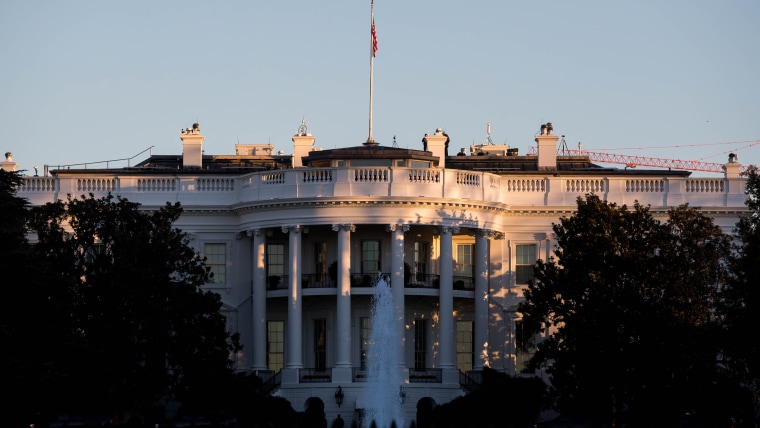Donald Trump's budget director, Mick Mulvaney, briefed reporters yesterday on the White House's new proposed budget, which as you've probably heard, seeks significant new spending on the military. Mulvaney said the $54 billion increase to existing defense spending is "one of the largest increases in history," and it will be offset by cutting investments in everything else."It's the largest proposed reduction [to non-defense spending] since the early years of the Reagan administration," Mulvaney added.And while the core idea will be the basis for a spirited debate, it's worth pausing to note that the president this morning painted a very different picture of the administration's budget plans. Reuters reported:
President Donald Trump said he believes the extra $54 billion dollars he has proposed spending on the U.S. military will be offset by a stronger economy as well as cuts in other areas."I think the money is going to come from a revved-up economy," Trump said in a Fox News interview broadcast on Tuesday, hours before he was to address a joint session of Congress."I mean you look at the kind of numbers we're doing, we were probably GDP of a little more than 1 percent and if I can get that up to 3 or maybe more, we have a whole different ball game. It's a whole different ball game."
Got that? On Monday afternoon, the White House line was that the massive increase in military spending would be offset by massive cuts elsewhere in the budget. By Tuesday morning, the White House line was that the defense build-up would be paid for by a "revved-up economy."The contradiction matters, but it's only part of the problem here.What Trump is describing is something called "voodoo economics" -- a phrase George H.W. Bush coined to dismiss Ronald Reagan's budget plans (which Bush later embraced as Reagan's vice president). The idea is, policymakers can pay for new spending and/or new tax cuts by counting on economic growth. More growth means more tax revenue, more revenue means more budget room to cover the expenditures of the Republican agenda.Bush, before he had to change his mind about his beliefs, was right, and "voodoo economics" has never delivered. And yet, there's Donald Trump, not only touting unrealistic GDP estimates, but also paying for new spending with revenue that doesn't (and probably won't) exist -- even after his budget team presented an entirely different answer to the same question.Referring to the president yesterday, OMB Chief Mick Mulvaney added, "We are taking his words and turning them into policies and dollars." I imagine that's true, but what happens when his words are ridiculous? What kind of policies might that produce?As for the fact that Trump and his budget director are saying completely different things about the same subject, this continues to be a problem for the administration for which there is no good answer. The “Never-Mind-What-Trump-Said” approach to public policy has generally focused on international affairs, but apparently it's equally applicable to the budget.
